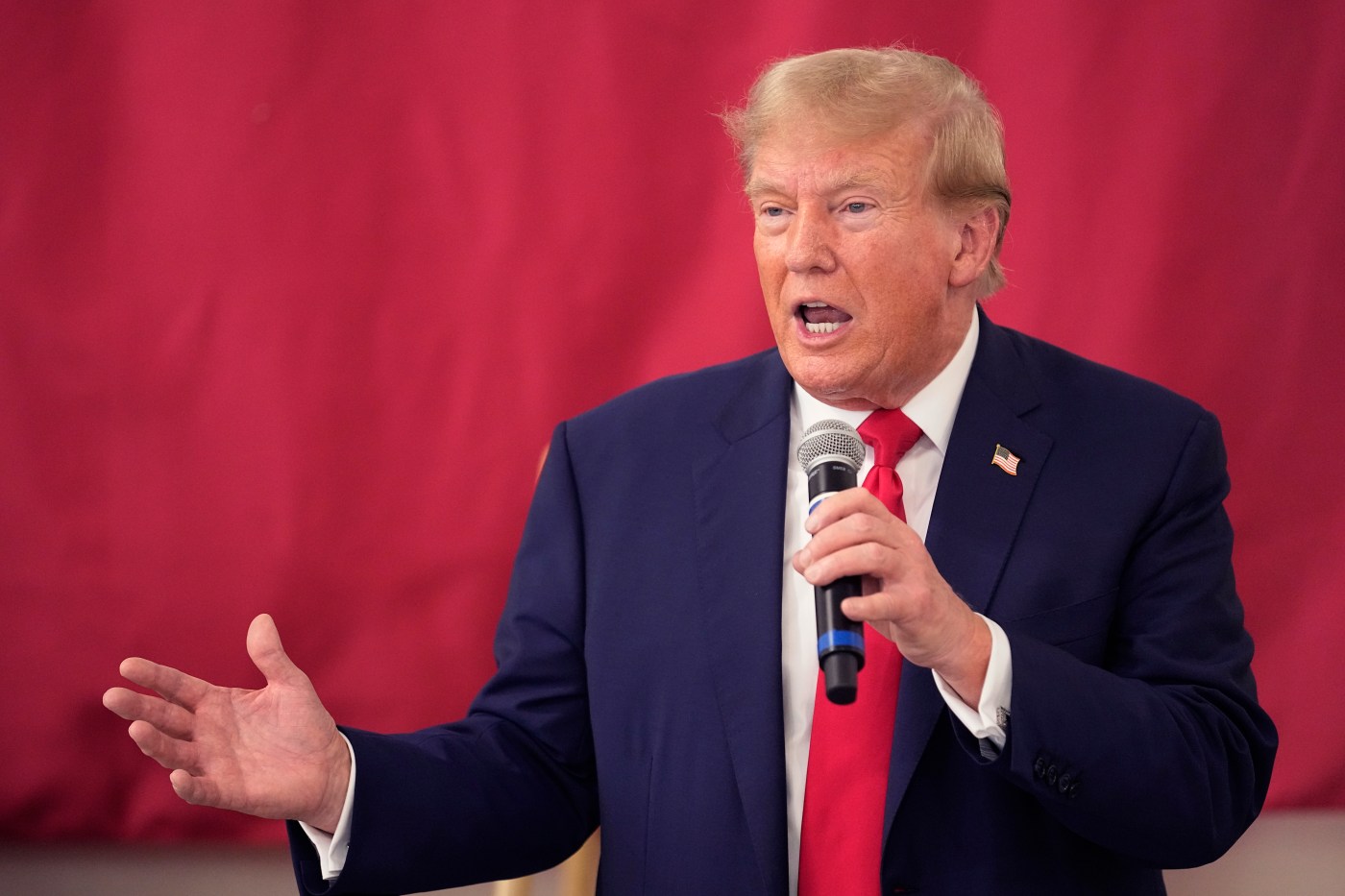
Paul Krugman: Donald Trump still wants to kill Obamacare? Why?
Donald Trump hasn’t talked much about policy in this election cycle, except for vague assertions that he’ll somehow bring back low unemployment and low inflation — which, by the way, has already happened. (Unemployment has been at or below 4% for almost two years. Thursday’s report on consumer spending showed the Federal Reserve’s preferred measure of underlying inflation getting close to its 2% target.) Most of his energy seems to be devoted to the prospect of wreaking revenge on his political opponents, whom he promises to “root out” like “vermin.”
Nonetheless, over the past few days, Trump has declared that if he returns to the White House, he’ll once again seek to do away with the Affordable Care Act, the reform that has produced a significant decline in the number of Americans without health insurance.
Why this renewed assault? “Obamacare Sucks!!!” declared the former and possibly future president. Trump also promised to provide “MUCH BETTER HEALTHCARE” without offering any specifics.
So let’s discuss substance here. Does Obamacare, in fact, suck? And can we believe Trump’s promise to offer something much better?
On the latter question, remember that Trump and his allies came very close to killing the ACA in 2017 and replacing it with their own plan — and the Congressional Budget Office did a detailed analysis of the legislation that almost passed. The budget office predicted that by 2026, the Republican bill would cause 32 million people to lose health insurance, and that the premiums paid by individuals buying their own insurance (as opposed to getting it through their employers) would double.
There is, as far as I can tell, no reason to believe that Trump has come up with a better plan since then, or that a new analysis of his plan would be any less dismal.
But while ending Obamacare would have ugly results, how well has the ACA actually worked?
The main point in Obamacare’s favor is simply the fact that the number of uninsured Americans fell sharply after the law went into effect. We’re still well short of the more or less universal coverage provided by every other advanced country, and the health insurance some Americans have remains inadequate, but the gap has narrowed a lot.
Now, Obamacare’s success hasn’t happened in quite the way its proponents expected. Most of the original discussion of reform focused on creating exchanges where individuals could buy their own insurance. And such “non-group” coverage has indeed expanded, but most of the rise in coverage has instead come from an expansion of Medicaid (which would be even larger if some red states, including Texas and Florida, weren’t still refusing to accept federal dollars to help their own residents).
Still, success is success, even if it didn’t happen quite the way you predicted. And I would argue that the insurance exchanges convey major benefits that go beyond the number of people currently using them. Before Obamacare, Americans with pre-existing medical conditions who weren’t lucky enough to get coverage through their employers were in dire straits: Insurers either wouldn’t cover them at all or would charge exorbitant premiums. I knew some people who stayed in jobs they hated because they had health problems and feared losing insurance. Now insurers are prohibited from discriminating based on medical history; and this, combined with subsidies that keep premiums down, has given Americans some much-needed security.
But what about the costs? Was Obamacare a fiscal disaster? Calculating the true costs of the ACA is tricky, in part because the law, while offering extensive subsidies, also included many measures aimed at reducing health costs. What I find striking is that federal spending on health care since the ACA was passed has grown much more slowly than almost anyone expected.
For example, in its 2010 report on the long-term budget outlook, the budget office projected that spending on major health programs in 2023 would come in between 7.4% and 7.9% of gross domestic product. It now expects that number to be only 5.8%. Predictions that Obamacare would lead to runaway spending have proved completely wrong.
Why, then, is Trump still determined to kill a program that has improved many lives without busting the budget? Much of it, no doubt, reflects the general hostility of the modern Republican Party to any program that helps less fortunate Americans.
But it’s hard to escape the sense that there’s also something personal involved. In his rambling speeches, Trump often seems to believe that Barack Obama is still the president. Regardless of whether Trump is actually confused about this, the Affordable Care Act was Obama’s biggest achievement. And everyone still calls the program Obamacare.
Is Trump vain and petty enough that he would take health care away from millions simply to demolish his predecessor’s legacy? You tell me.
Paul Krugman writes a column for the New York Times.
Related Articles
Mark Gongloff: Do 70,000 people really need to be at a climate confab?
Page Fortna: In Gaza conflict, words like ‘terrorism’ and ‘genocide’ are potent weapons. Definitions matter
Rosalie Metro: Palestinian and Israeli children are endangered by ‘us vs. them’ narratives
Erwin Chemerinsky: The outlandish ruling that could eviscerate what’s left of the landmark Voting Rights Act
Mark Gongloff: Human brains aren’t wired to fight climate change


